US Slams 'Draconian' Execution Of Iranian Protester
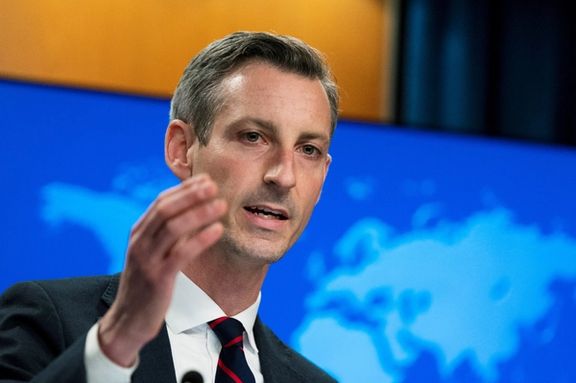
US State Department has denounced the execution of Mohsen Shekari, by the Iranian regime, saying these “draconian” tactics are meant to intimidate people.

US State Department has denounced the execution of Mohsen Shekari, by the Iranian regime, saying these “draconian” tactics are meant to intimidate people.
State Department Spokesman Ned Price said Thursday the execution of the 23-year-old Iranian “represents a grim escalation in the regime’s attempt to suppress dissent and quash these protests.”
Price also expressed condolences to Shekari’s loved ones, saying Washington mourns his death.
Elsewhere in his remarks, he said the regime has “rounded up” and detained thousands of people for their involvement in the protests while many now face “harsh sentences, including the death penalty, in sham trials that lack any due process.”
The US denounces these draconian sentences and the denial of due process to the accused in the strongest terms, he underlined. Similar messages were tweeted by Secretary of State Antony Blinken and US National Security Advisor Jake Sullivan.
“Unfortunately, this is just the latest tactic in the Iranian regime’s ongoing, brutal crackdown on peaceful protestors. These sentences are meant to intimidate people and suppress dissent, and they simply underscore that Iran's leadership fears its own people and fears the truth,” stressed Price.
Iran executed Mohsen Shekari Thursday, the first detained protester to be killed on “legal” basis. He was convicted of injuring a security guard and closing off a street in the capital Tehran.
Price warned the Iranian regime, “The United States continues to coordinate with allies and partners to confront Iran’s human rights abuses, both in public and in private,” expressed the US spokesman.
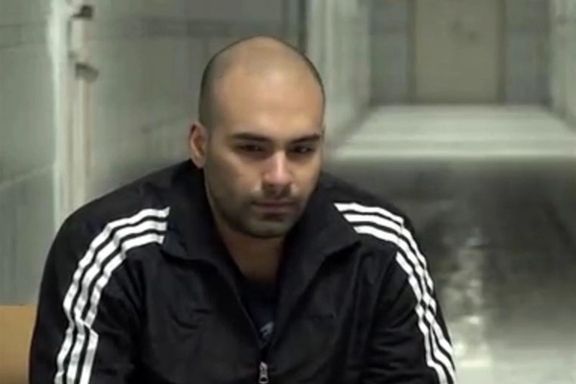
After the Islamic Republic started executing protesters on Thursday, global condemnations and calls for action began to pour in from all over the globe.
France's foreign ministry spokesperson said that the European Union is set to approve new sanctions targeting Tehran over human rights abuses in its crackdown on protesters in the country as well as supplying Russia with weapons to be used in the invasion of Ukraine.
Condemning the execution in the “strongest terms,” Anne-Claire Legendre told reporters that “This execution comes on top of other serious and unacceptable violations.”
She added that foreign ministers would discuss new designations on individuals and entities involved in the crackdown and entities exporting drones to Russia. The EU has already imposed two rounds of sanctions since October in the form of asset freezes and travel bans.
Earlier on Thursday, the Islamic Republic hanged Mohsen Shekari, a young protester convicted of injuring a security guard with a knife and closing off a street in the capital Tehran. Nationwide protests that erupted after the death of 22-year-old Kurdish Iranian woman Mahsa Amini on September 16 represent one of the biggest challenges to the Islamic Republic since its establishment in 1979. So far, around 500 civilians have been killed by security forces and at least 18,000 arrested. While many have been released, around 1,500 face criminal charges, and at least 80 detainees face the death sentence.
State Department Spokesperson Ned Price described the execution as "a grim escalation in the regime’s attempt to suppress dissent and quash these protests.” Expressing condolences to his loved ones, he denounced the “draconian sentences and the denial of due process to the accused in the strongest terms.”
Condemning the execution, German Foreign Minister Annalena Baerbock described the Iranian regime's contempt for humanity as “boundless," saying that Shekari was “tried and executed in a perfidious summary trial because he disagreed with the regime. But the threat of execution will not stifle people's desire for freedom.”
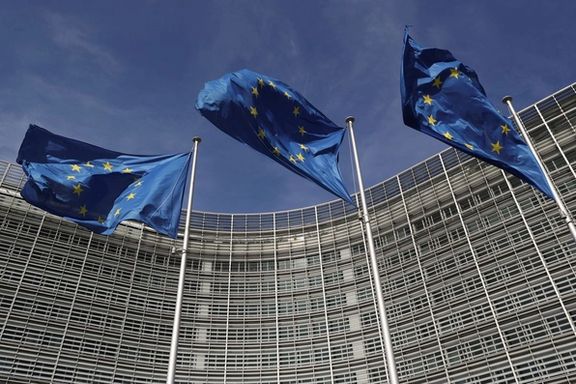
Vice-President of the German Parliament Katrin Göring-Eckardt tweeted, "Mohsen Shekari was only 23. The Iranian regime executed him for taking to the streets for a free Iran. It reacts with all (un)imaginable brutality to protests. The death penalty is contrary to human rights, everywhere."
UK Foreign Secretary James Cleverly also expressed outrage, and called on the world not to “turn a blind eye to the abhorrent violence committed by the Iranian regime against its own people.”
Norway’s Foreign Minister Anniken Huitfeldt also denounced the execution, and called on the regime to immediately halt executions, and to end the repression of fundamental freedoms.
Javaid Rahman, the United Nations Special Rapporteur on human rights in Iran, also said that he is “absolutely horrified, shocked and outraged by the news,” calling on Iranian authorities to immediately stop the use of death penalty as a weapon against protesters.
Vice-President of the European Parliament Pina Picierno said, “It is the first insane death sentence carried out on a protester in Iran,” and reiterated that the EU will always be “on the side of freedom, on the side of the protesters.”
Former Swedish Foreign Minister Margot Wallström urged the international community to be the voice of Iranians, saying that Sweden and the EU must take action quickly to save others. “The International community needs to speak out loud and clear against this.”
Human rights groups are also condemning the execution. Amnesty International urged the world to make Iranian authorities halt all planned executions and stop using the death penalty as tool of political repression against protesters in their attempt to end the popular uprising. It added that Shekari's execution "[exposed] the inhumanity of Iran's so-called justice system as dozens of others face the same fate".
"The international community must immediately and strongly react to this execution," Mahmood Amiri-Moghaddam, director of the Norway-based group Iran Human Rights, said in a statement, adding, “If Mohsen Shekari's execution is not met with serious consequences for the government, we will face mass execution of protesters.”
Two diplomatic sources told Reuters that the new EU sanctions were expected to be approved and adopted on Monday. According to one of the sources, 21 individuals and one entity would be sanctioned over human rights abuses, while there had been 10 proposals on the drone side.
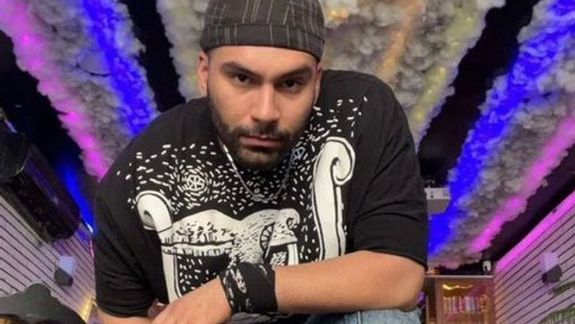
The hanging of a protester after a hasty and unfair trial has sparked deep anger among Iranians who believe his killing was meant to instill fear among the people.
The judiciary announced the execution of Mohsen Shekari, a twenty-three-year-old waiter, on Thursday. By the evening some had taken to the streets, particularly on Sattar Khan Avenue in the west of the capital Tehran where he was arrested, to protest his execution. A video posted on Twitter shows people marching towards the Shekari home in silence.
Many others have taken to social media to express their deep anger of the regime’s sham trial and execution of a young man to instill fear among protesters.
“For every person who is killed there will be thousand rising up,” protesters often chant on the streets. This time they are vowing revenge for Shekari and all those innocently executed or killed on the streets. “Wait for our revenge for Mohsen Shekari!” one of the thousands of tweets posted Thursday with the hashtag Mohsen Shekari said.
Some Iranians called the execution a simple murder by the state.
Reformist pundit Abbas Abdi in Tehran in a tweet argued that legal punishment would only establish justice and placate people if the accused’s trial is held publicly and with due process including the right to appoint an attorney he wishes to represent him. He then added that Shekari’s execution will only exacerbate hatred and animosity among people rather than deterring them from protesting.
Shekari was arrested for allegedly injuring a member of Basij militia of the Revolutionary Guards in the shoulder with a blade during a protest on September 25 after the death in custody of Mahsa Amini in ‘morality police custody. He was also accused of blocking a street to impede the passage security forces’ vehicles.
As in many similar cases, Shekari was tortured into making a self-incriminating “confession” which was aired on the state television during his trial to justify the harsh sentence to be meted out.
Like many others tried on security-related and political charges, Shekari was denied the right to have a lawyer of his choice in his trial on November 1. According to the Judiciary’s statement Thursday, his death sentence was upheld by the Supreme Court soon after.
Before he was hanged nobody knew of his case as authorities intimidated the family into silence, telling them that publicizing the case “would not serve his interests”.
“Prisoners are the Islamic Republic’s hostages … Families abide by whatever the hostage-taker wishes to save the lives of their loved ones. But experience teaches us that silence only worsens the prisoner’s condition because the Islamic Republic is not just targeting a person. They take hostages and issue death and prison sentences to crack down on the whole society,” said rights activist Atena Daemi in a series of tweets Thursday and urged families not to keep a lid on their detained loved ones’ circumstances before it gets too late to do anything.
The Revolutionary Court has sentenced several other protesters to death, including 27-year-old rapper Saman Sayyadi whose family have officially been informed of his imminent execution. Like Shekari, they have been charged with ‘moharebeh’, meaning waging war against God” or “taking up arms against God and the Islamic state”.
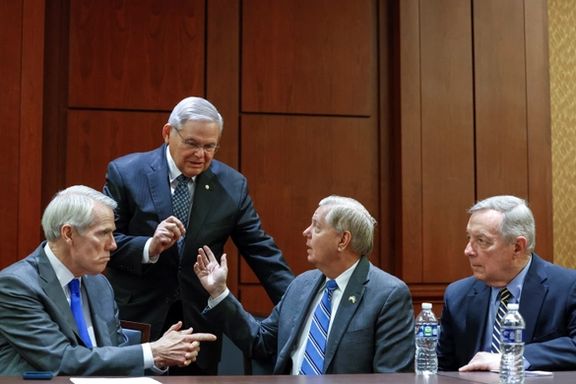
US Senate Foreign Relations Committee has approved a bipartisan resolution reaffirming Washington’s support for antigovernment protesters in Iran.
Spearheaded by Chairman of the Senate Foreign Relations Committee Bob Menendez (D-N.J.) and Senator Marsha Blackburn (R-Tenn.), the resolution condemned the Islamic Republic’s security forces for their violent response to Iranian citizens who have taken to the streets for their fundamental human rights.
An identical resolution was also introduced in the House of Representatives by Tom Malinowski (D-N.J.), Claudia Tenney (R-N.Y.), and Michael McCaul (R-Texas), Ranking Member of the House Foreign Affairs Committee.
The text of the resolution acknowledges common protest chants on streets, including "Women, life, freedom!"; “Iranians die but will not be suppressed!” and “Death to the dictator” referring to Iran’s ruler Ali Khamenei.
The resolution is aimed at garnering support for internationally coordinated measures against the regime, calling for continued efforts to hold those violating human rights accountable, including through additional sanctions. It also specifically stressed the importance for the United States government and the broader international community to provide additional support for access to digital communications and internet freedom given reports that the regime is blocking internet access out of fear of its citizens.
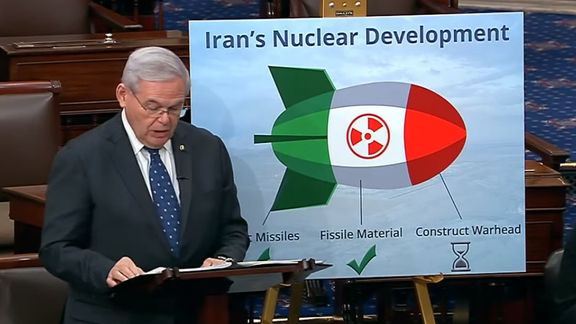
Hailing the popular uprising of Iranians, Menendez said, “Nearly three months since the brutal detention, beating, and murder of Mahsa Amini, the courage and defiance the Iranian people continue to display in the face of the regime’s brutality has served as an extraordinary example for all of us and everyone around the world who believes all people deserve a say in their livelihoods and way of life.”
He also expressed hope that the Congressional approval of this bipartisan, bicameral resolution will “help amplify the voices of the hundreds of thousands of women and men of Iran who are protesting against the brutality of one of the world’s most repressive regimes.”
Calling on the international community to stand with the people of Iran, Menendez said he is committed to keep the Committee’s spotlight on the Iranian regime’s crackdowns, shutdowns, and deflections in response to the demands of the Iranian people.
Menendez was among the first Democrat lawmakers who had spoken out against the Biden administration's Iran policy and ongoing nuclear talks earlier this year. Stressing the need for a new Iran strategy and an end to negotiations with Iran to restore the JCPOA, the powerful Senate Democrat demanded that Biden should enforce oil export sanctions currently on the books against Iran. Since Biden’s election Tehran has increased its oil exports to nearly one million barrels a day, mostly in illicit shipments to China.
Endorsing the new resolution, Senator Blackburn said, “Many brave Iranians fighting for their basic human rights are brutally murdered or taken to prison, where they endure harrowing torture until they are executed,” while Senator Bill Cassidy (R-La.) said, “Iranians are struggling for their freedom,”
“Every day, we learn more about the Iranian regime and the lengths they will go to retain power and control. The Iranian people’s fight for equal rights and freedom has been heard around the world as they push back against violent security forces. The bravery of the Iranian citizens cannot be overstated, and we stand with them in their peaceful protests against their tyrannical government,” said Senator Kevin Cramer (R-N.D.).
Ben Cardin (D-Md.) also commended Iranians for “standing up against an oppressive, corrupt regime,” adding that “Iran’s murderous crackdown on peaceful protesters deserves universal condemnation.”
The measures came a few hours before the Islamic Republic executed the first detained protester who was convicted of injuring a security guard with a knife and closing off a street in the capital Tehran.
So far, around 500 civilians have been killed by security forces and at least 18,000 arrested. While many have been released, around 1,500 face criminal charges, and at least 80 detainees face the death sentence.
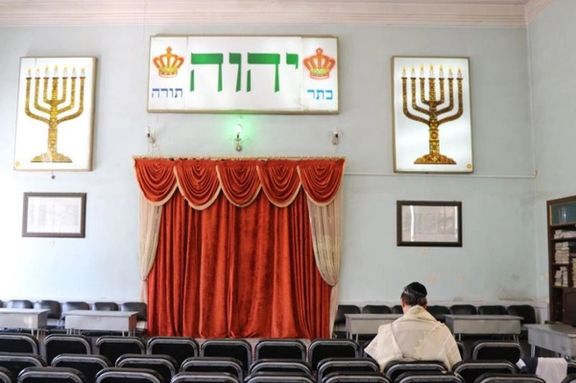
Reports received by Iran International say the Islamic Republic has arrested five Jewish citizens amid nationwide protests against the regime.
Four of these citizens have been detained in Tehran and one came under arrest in the southern city of Shiraz in the past few weeks, Iran International has learned.
Reports say despite the Jewish community leaders’ efforts, only one of the inmates has been released so far.
In the early days of antigovernment protests, the leaders of the Jewish community in Iran called on their members not to participate in the protests.
In an unprecedented move, they also asked Jews not to come to the synagogues to practice religious ceremonies.
Meanwhile, some leaders of the Jewish community of Iran, under the pressure of security forces, have reportedly warned Jews in the synagogues that they should not participate in protests and if they are apprehended, they will not take any action to release them.
In this regard, Tehran Jewish Community published an unprecedented statement late November to condemn the uprising against clerical rulers.
The United States on December 2 designated China, Iran and Russia, among others, as countries of particular concern under the Religious Freedom Act over severe violations.
US Secretary of State Antony Blinken in a statement said those designated as countries of particular concern engaged in or tolerated severe violations of religious freedom.
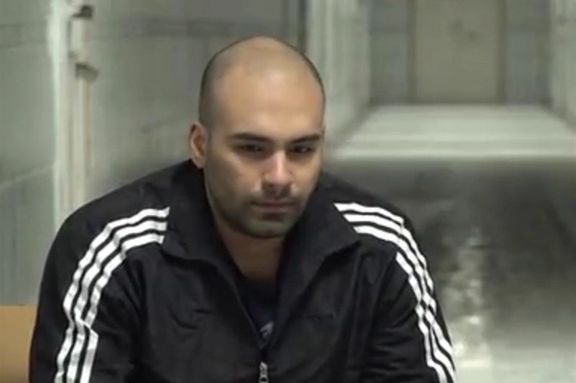
The Vice-President of the European Parliament has strongly condemned the execution of a protester by the Iranian government calling it “insane”.
Hours after a young Iranian, Mohsen Shekari, was hanged without a real trial, Pina Picierno reacted to his death in a tweet saying, “It is the first insane death sentence carried out on a protester in Iran.”
The Italian politician threw her weight behind the Iranian demonstrators stating that “you will find us on the side of freedom, on the side of the protesters. Always.”
Meanwhile, the Former Minister for Foreign Affairs of Sweden urged the international community to be the voice of Iranians.
Margot Wallström said in a tweet that “Mohsen Shekari was executed today in Iran by the Islamist regime. He was 23 years old.”
She went on to say that Sweden and the EU must take action quickly to save others. “The International community needs to speak out loud and clear against this,” reads her tweet.
Social media users are also raising concerns about the fate of other Iranian detainees saying thousands of other arrested protesters may have the same fate.
Mohsen Shekari, who was convicted of injuring a security guard with a knife and closing off a street in the capital Tehran, was hanged as the first detained protester to receive the death penalty on Thursday.